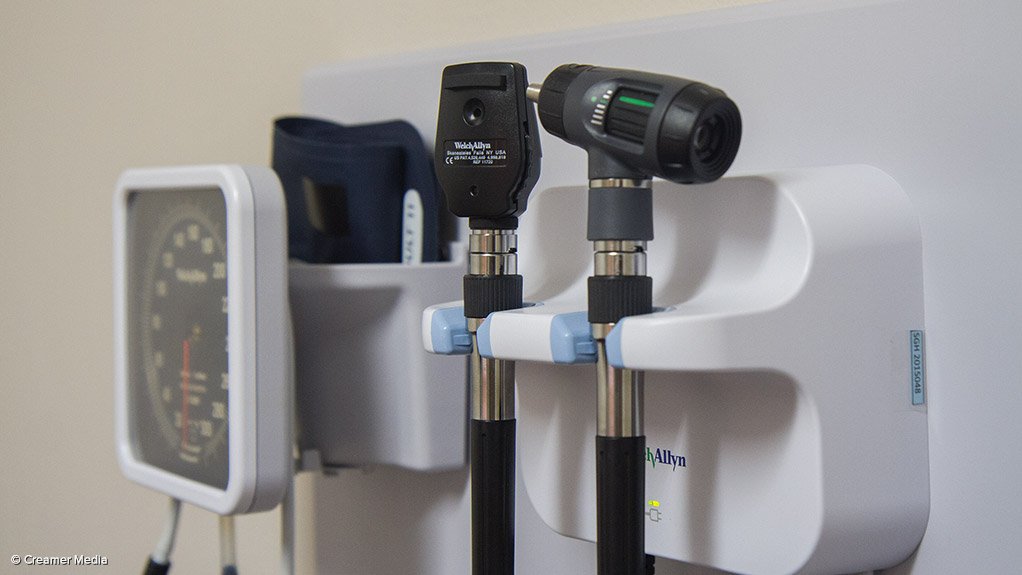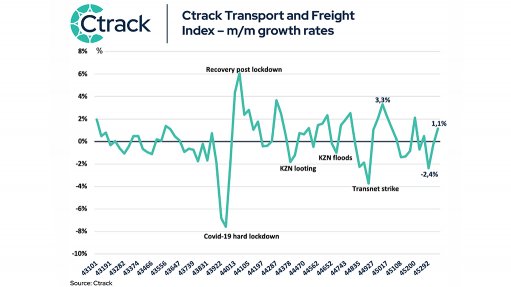Current format of NHI will be expensive, without the promise of improved quality of care – BLSA
A partnership between government and the private sector is necessary for the provision of quality healthcare for all, but the National Health Insurance (NHI), as currently envisaged in the Bill, will leave all South Africans worse off in a system in which State provision becomes impossible and private health provision is effectively closed down, Business Leadership South Africa (BLSA) CEO Busi Mavuso writes in her latest newsletter.
The system would impose a single payer model in which government is the only buyer of healthcare services for citizens. It would relegate the private health insurance market to only complementary healthcare that is not covered by the State scheme, she notes.
Principles of competition and patient choice are important in healthcare. They reduce wastage, spur innovation and drive insurers and healthcare providers to cater to patient demands, she adds.
"A single-buyer model interferes with accountability by removing the buying decision from the patient. Instead, an elaborate bureaucracy must somehow oversee care quality to overcome the problem that patients will no longer be able to choose their providers."
The monitoring costs, if quality is to be maintained, will swamp the purported gains from economies of scale. The reality is that the healthcare system, as it stands, often fails to monitor care quality, Mavuso emphasises.
"Business has every interest in seeing universal health coverage in South Africa, but it must be sustainable, and provided in a way that best uses the scarce resources of the State," she argues.
"The current format of the NHI reflects nothing of the learnings from other critical interventions that government and business have achieved by working together.
"The electricity crisis is an obvious example, where the introduction of large-scale private electricity generation has led to a dramatic increase in the number of projects now being built to add capacity to the grid. With the right incentives, the private sector can complement government efforts, speed up the investment needed and reduce costs to the State and to users," she says.
Further, this principle has also been well demonstrated in the healthcare environment. The Covid-19 crisis saw a rapid partnership formed between business and government to globally source the equipment and medicines needed to fight the pandemic, to roll out vaccines as rapidly as possible and to fund many other interventions. It was a clear demonstration that national health outcomes are achieved faster and more efficiently when government and business work together, drawing on their respective strengths.
There has also been good cooperation in providing infrastructure such as the Albert Luthuli Hospital in KwaZulu-Natal and that being developed for the Tygerberg Hospital in the Western Cape through public-private partnerships.
"Against these examples of effective delivery through cooperation, we must consider the state of the public sector, which outgoing Health Ombud Professor Malegapuru Makgoba recently said was not ready for a national health insurance system and in which care quality has been deteriorating in most provinces," Mavuso highlights.
"I call on government to approach the healthcare question with the same openness to partnership with business that it has shown in solving our electricity crisis and in dealing with health system challenges in the past. Together, we can build a mechanism that delivers the best possible universal healthcare to South Africans at the lowest cost, while ensuring we do not destroy the parts of our health system that do work."
Further, the principles of blending private and public cover have also been applied in developing countries, such as Thailand, where 99.5% of citizens have coverage from a mix of public and private schemes, and Brazil, where a robust public healthcare system works alongside private service providers.
"The NHI format proposed would be hugely expensive, drawing resources out of the rest of the government and the services it provides, while increasing the tax burden on all of us. Most importantly, we have no reason to believe the quality of care it provides would be an improvement on the status quo.
"By forcing the private sector out of the provision of all but a limited set of complementary services, private provision would effectively cease. For globally mobile businesspeople and their families, this would be another serious disincentive to work in South Africa."
Other countries have found far better ways to deliver universal coverage that benefits from the principles of competition.
Obamacare in the US is the most obvious case, in which all health insurers compete in a marketplace to offer cover to ordinary Americans. Insurers must provide minimum benefits and the state provides a subsidy to those earning below a threshold.
Through the marketplace, insurers compete to offer the best prices to consumers. Those consumers can then also choose where to go for healthcare when needed. This approach focuses scarce public resources where it matters, namely supporting those who do not work or earn below a threshold, while ensuring market incentives reduce costs and improve service quality, she notes.
Comments
Announcements
What's On
Subscribe to improve your user experience...
Option 1 (equivalent of R125 a month):
Receive a weekly copy of Creamer Media's Engineering News & Mining Weekly magazine
(print copy for those in South Africa and e-magazine for those outside of South Africa)
Receive daily email newsletters
Access to full search results
Access archive of magazine back copies
Access to Projects in Progress
Access to ONE Research Report of your choice in PDF format
Option 2 (equivalent of R375 a month):
All benefits from Option 1
PLUS
Access to Creamer Media's Research Channel Africa for ALL Research Reports, in PDF format, on various industrial and mining sectors
including Electricity; Water; Energy Transition; Hydrogen; Roads, Rail and Ports; Coal; Gold; Platinum; Battery Metals; etc.
Already a subscriber?
Forgotten your password?
Receive weekly copy of Creamer Media's Engineering News & Mining Weekly magazine (print copy for those in South Africa and e-magazine for those outside of South Africa)
➕
Recieve daily email newsletters
➕
Access to full search results
➕
Access archive of magazine back copies
➕
Access to Projects in Progress
➕
Access to ONE Research Report of your choice in PDF format
RESEARCH CHANNEL AFRICA
R4500 (equivalent of R375 a month)
SUBSCRIBEAll benefits from Option 1
➕
Access to Creamer Media's Research Channel Africa for ALL Research Reports on various industrial and mining sectors, in PDF format, including on:
Electricity
➕
Water
➕
Energy Transition
➕
Hydrogen
➕
Roads, Rail and Ports
➕
Coal
➕
Gold
➕
Platinum
➕
Battery Metals
➕
etc.
Receive all benefits from Option 1 or Option 2 delivered to numerous people at your company
➕
Multiple User names and Passwords for simultaneous log-ins
➕
Intranet integration access to all in your organisation




















